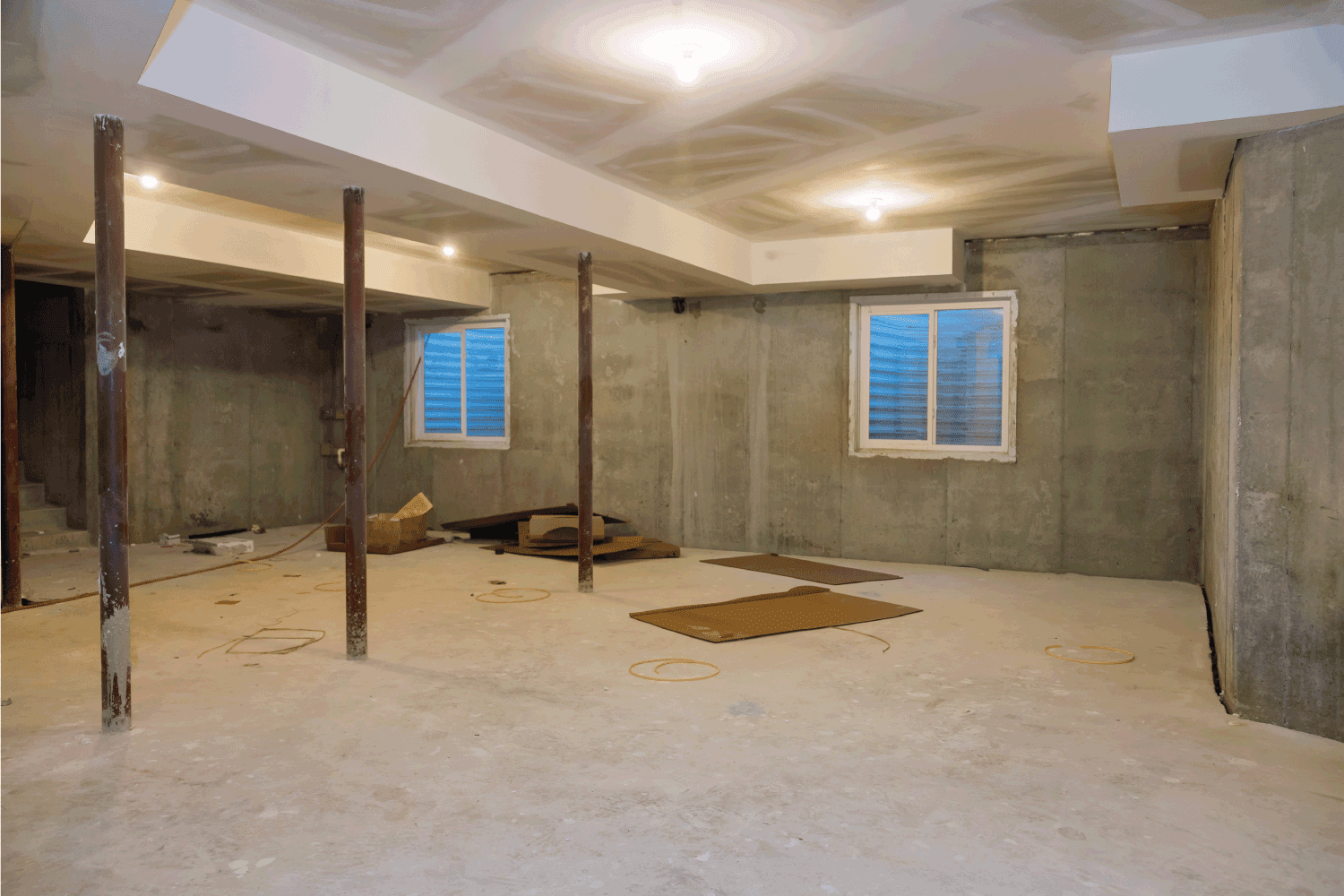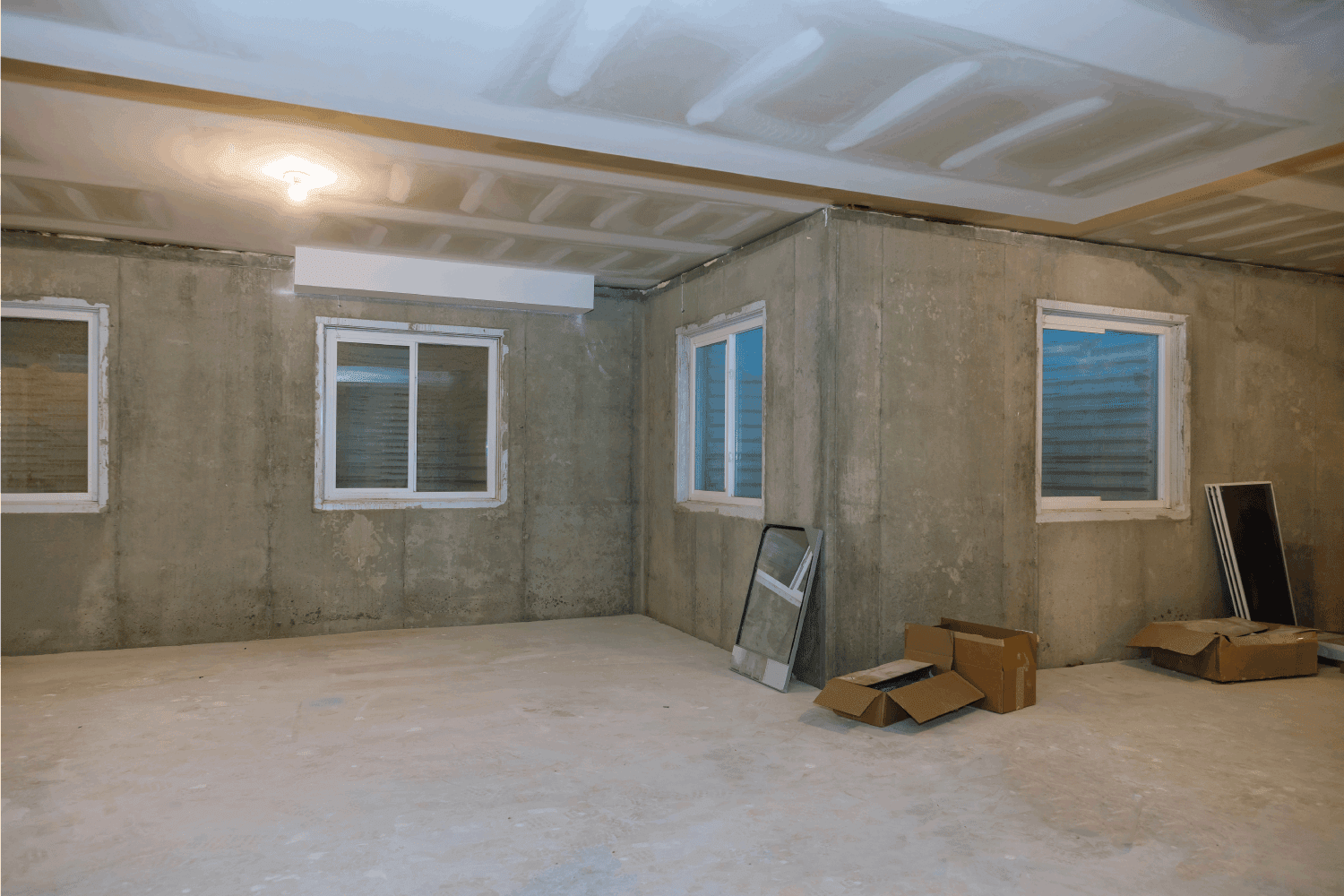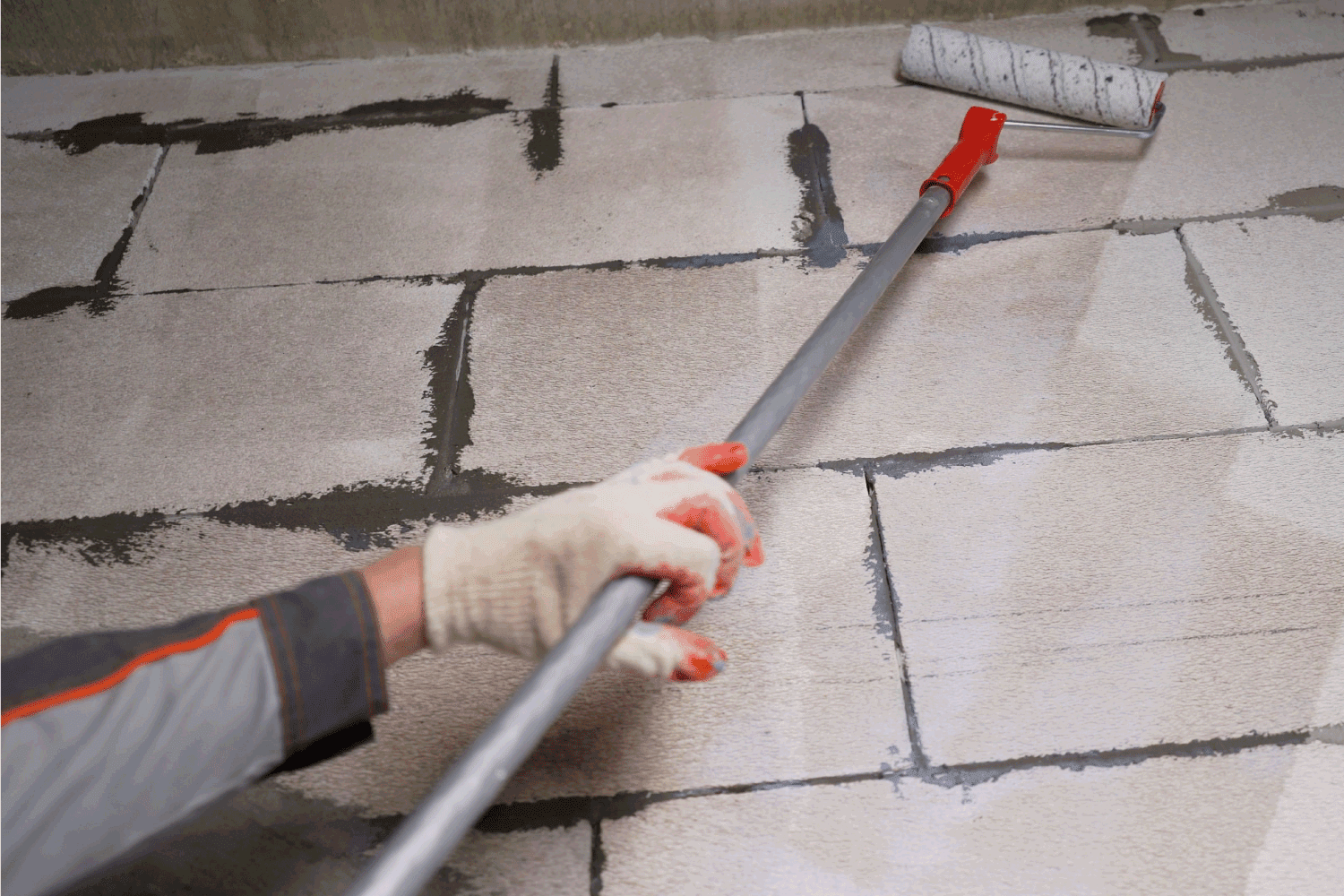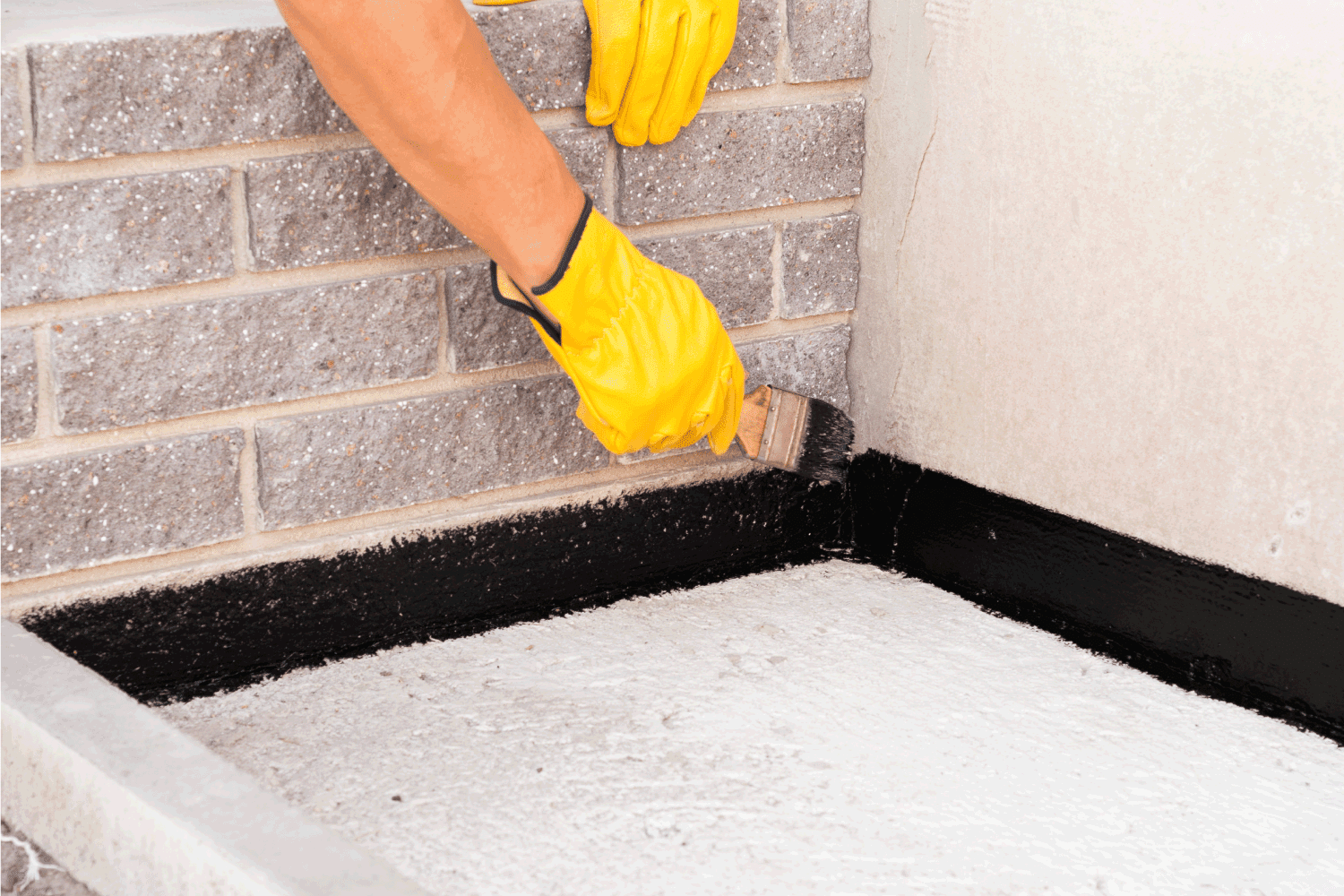Basements provide homes with extra living space, storage, and other functional uses. However, they are usually the most neglected part of a home. We've researched how you can maximize your basement's use and keep it in the best condition.
It is important to seal your basement walls to alleviate future problems such as seepage or leaks. Applying basement sealants is vital in protecting your home and its foundation.
Waterproofing your basement is the best way to prevent moist walls and water puddles. You will have to follow simple procedures to seal your basement walls properly. Luckily, we are here to help and guide you; read on to know the benefits a sealed basement can offer.
![Applying a primer to a block wall. Roller application of waterproofing sealant to the wall. Should You Seal Your Basement Wall [And How To]](https://hvacseer.com/wp-content/uploads/2022/04/Applying-a-primer-to-a-block-wall.-Roller-application-of-waterproofing-sealant-to-the-wall.-Should-You-Seal-Your-Basement-Wall-And-How-To.png)
Why should you seal your basement walls?
Whether you already have water issues in your basement or not, sealing your basement walls or foundation waterproofing is highly recommended. Waterproofing your basement is vital in protecting your home's foundation.
Leaks can cause damp basements. If left unrepaired, this water seepage will eventually damage the home's foundation and lead to flooding. Any belongings stored in your basement could be damaged as a result.
A leaky basement will eventually damage your home's foundation because any kind of moisture can ruin framing, drywall, and any wood.
Not only that, but all kinds of bacteria would also make their way into your home through leaks. Moisture is a breeding ground for mold and mildew. This poses a great health risk.
As a homeowner, you may want to prevent these risks so that you and your family could live in a secure healthy environment. It is better to not be exposed to such threats than to deal with consequences when it happens.
You may not see it as a necessary thing to do, but it will help protect and preserve your basement.

What leaks into your basement?
The most common problem with basements is water seepage. It comes in three forms - rainwater, melting snow, and groundwater. It is always important to identify the cause in order to know how to properly address the issue.
A simple way to determine the actual source of the problem is to tape a piece of aluminum foil to your basement wall. After a few days, inspect if moisture has gathered on the outside surface of the foil. This implies high indoor humidity. If however, the moisture gathers behind the foil, this means that moisture is leaking through the walls.

Basement Wall Sealants
Now that you have identified the issue, the right kind of sealant would be easier to identify.
Concrete Sealant
Concrete sealers protect your walls from weather exposure, water, grease, and oil stains. It prevents moisture build-up and ground vapor from escaping through the concrete and into your basement.
These are the recommendations of the top or the best sealant brands that would enable you to protect your basement.
1. LithiTek 4500 Primer
The most popular brand on the market right now is the LithiTek 4500 primer because it is an industrial grade, water-based, lithium densifier making it 50% stronger than most sealants.
On old concrete, this sealant may feel sticky for a couple of days but this is not the effect when applied on new concrete. Although the water repelling formula takes a week to take effect, the quality of the outcome is one of the best.
Check out LithiTek 4500 Penetrating Sealer on Amazon.
2. Siloxa-Tek 8510
Siloxa-Tek 8510 is an advance, high performance, industrial strength sealant that is water and oil repellent. It is designed to reduce moisture and water intrusion.
This special formula includes molecular nanotechnology that prevents water, moisture, oil, and any other fluids from forming or staining your basement walls.
Check out Siloxa-Tek 8510 on Amazon.
Wood Sealant
This sealant protects wood from water and moisture. Since wood is permeable, changing weather, humidity, and temperature can cause it to shrink. However, using wood sealants preserves the internal structure of this material, making sure that it never shrinks or expands.
1. Thompson's Water Seal
For decades, Thompson has been proven to have the best wood sealants on the market. This product is able to resist mold and mildew. Not only that but it is also known for its long-lasting quality.
This sealant can be applied on both dry and damp wood, so you won't have to worry about coating damp wood walls down your basement.
Check out Thompson Water Sealant on Amazon.
2. Rainguard Premium Wood Sealer
Rainguard Premium Wood Sealer is another premium sealant brand. This substance is formulated with water-based silane and siloxane blend. One of the best things about this formula is it leaves an almost invisible finish that does not make the surface slippery.
Aside from protecting the wood against mold, mildew, oil, water, and gas, this sealant shields the wood from thaw damage and freezing.
Check out Rainguard Wood Sealant on Amazon.
3. DEFY Crystal Clear Sealer
Composite wood is one of the most difficult materials to seal because it is a mixture of various materials such as wood fiber and thermoplastic. However, innovation made it easier for us to seal this type of wood.
Just like most sealants, it protects your wood walls from mold, mildew, and algae stains. It is composed of zinc-nano particles that do not only function as a sunblock, but also help prevent graying and color discoloration.
Check out DEFY Crystal Clear Sealer on Amazon.

How to seal basement walls?
The foundation is the most important part of every structure. It is the overall strength of a home. But as a house's base shifts and settles into the earth, cracks will eventually develop and water may seep in. This results in having a wet basement.
However, thanks to innovation, these foundation cracks can be easily repaired with the use of simple DIY waterproofing solutions. Take note that this method is for interior waterproofing only.
Step 1: Clean the Area
Before starting your project, you have to clean up the areas you'll be waterproofing. Many types of sealant only work well if applied directly onto the damage, so if there are any current coatings on the wall, you will have to remove them.
To remove dirt and dust, wash the walls using a scrub brush dipped in a mixture of warm water and dish soap.
If you notice any mold build-up, you can add one cup of bleach per gallon of water. Warning: remember to check if your dish soap has ammonia before mixing the bleach -if so, do not mix.
After washing the walls, rinse them with warm water then let everything dry completely before proceeding to the next step.
Step 2: Fix Holes
Use hydraulic cement if you notice any holes and large cracks. Hydraulic cement is useful when sealing cracks and holes. It also prohibits water from flowing through them.
Some hydraulic cement hardens and dries so quickly, usually within three to five minutes, so you have to use a trowel to even and smooth the surface before the cement sets.

Step 3: Fill Cracks and Seal Openings
The next thing you have to do is to inspect the walls for any cracks. Fill smaller crevices with fillers. Once you are finished with this, you must seal any openings such as doors, windows, and window wells.
Experts recommendusinge elastic sealants that are waterproof and flexible.
Step 4: Apply Waterproof Coating
After the holes and cracks are sealed, you can now apply a waterproof coating on your basement walls and floors. It is important to coat the surface to protect your basement from hydrostatic pressure and water seepage.
![Foundation bitumen waterproofing. Building house construction with waterproofing spray-on tar. Should You Seal Your Basement Wall [And How To]](https://hvacseer.com/wp-content/uploads/2022/04/Foundation-bitumen-waterproofing.-Building-house-construction-with-waterproofing-spray-on-tar.-Should-You-Seal-Your-Basement-Wall-And-How-To.png)
In Closing
It is always the best idea to seal your basement walls and floors to avoid any future issues and to keep your home more comfortable and safer for you and your family to live.
If you have found this helpful, check out these other informative articles:
"Will Insulating Basement Make House Warmer?"
"How To Seal Windows From The Inside?"





